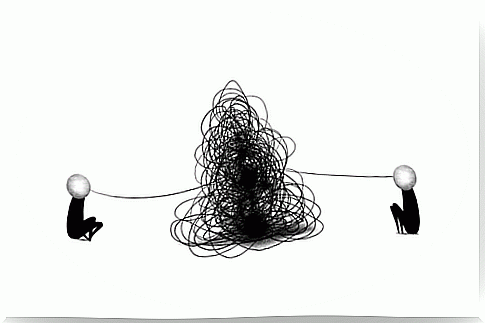Preventing Depression: Three Habits

A lot has already been said about depression and how it manifests, as well as how to deal with the symptoms that accompany it. Yet, believe it or not, the emphasis has not yet been placed on a very important aspect of it: that depression can be prevented. There are even some habits that can help you with this.
It is no secret to anyone that depression is becoming more common worldwide. There are hundreds of studies that support this claim. In fact, it’s become something a lot of people are casually talking about as if it were completely normal. People say ‘one day I woke up depressed’ and that was it. Like it’s something that doesn’t deserve attention.
While depression may have become a common topic, a lot of people still don’t know the exact difference between sadness and depression. The latter is not a normal state of mind, but a state of mind that lasts for a certain amount of time and requires the right measures to be able to overcome it. Sadness is a feeling, depression is a condition. As with any condition, depression can be prevented if you take the right measures in time.
Prevent depression by recognizing your own emotions
People often tend not to correctly describe their emotions at all. This problem is not with language, but with thought. Many of us don’t make enough effort to identify our emotions and figure out what we’re really feeling right now.

In reality, it is not at all easy to name and describe your emotions. This can only be done with constant effort. It helps to try to describe each emotion on paper so that you can discover its true nature. Are you angry or frustrated? Are you happy, or would you better describe the feeling you experience as euphoric? Sometimes the differences are very subtle, yet relevant.
When you learn to recognize your emotions, you take a giant leap forward in preventing depression. Recognition helps to create order in your mind. As a result, you will be able to more easily understand your problems and come up with solutions.
Get more empathy
Developing empathy is a very important factor in preventing depression. It is an ability that allows us to understand the feelings of another and put ourselves in this person. This in turn allows you to understand reality from another person’s perspective: someone who is in different circumstances, with different interests, and influenced by different thoughts.

Why does empathy help prevent depression? By learning to be more understanding for others, you will also be able to have more understanding and affection for yourself. It allows you to get out of your own head and see the world from a different perspective. And of course it makes your relationships with others a lot easier.
Empathetic people are much less self-centered and much more flexible. This also means that they are more tolerant and, as a result, less difficult. A person who has a well-developed capacity for empathy is less likely to fall prey to the clutches of depression.
Practice assertive communication
The way you communicate with the world determines the way you relate to the world. There is no other way to find out what someone is thinking or feeling than by looking at the way they communicate. It can be a small gesture, words, or even a silence. Artistic expression is also a way of communicating. In other words, people communicate all the time.

The quality of our links depends on what you communicate, even if it is unconscious. Silence when you have something to say will lead to confusion, not understanding. Saying what you have to say without considering the way you say it will lead to reactions to your rudeness and aggressiveness, not understanding what you want to convey.
Assertive communication involves expressing what you think and feel in a way that others can genuinely understand. Achieving this requires constant practice. In addition, you do not always have control over how others perceive something or what they do or do not understand. Nevertheless, it is important to communicate in a clear, calm and appropriate manner. If you do this, there is a much greater chance that you will be understood.
Recognizing your emotions, showing empathy, and applying assertive communication are closely linked. These three skills contribute to the prevention of depression. They will not develop on their own, these are skills that you must cultivate yourself. It’s definitely not easy, but it’s worth it. Your effort will be reflected in improved mental health and higher quality of life.









